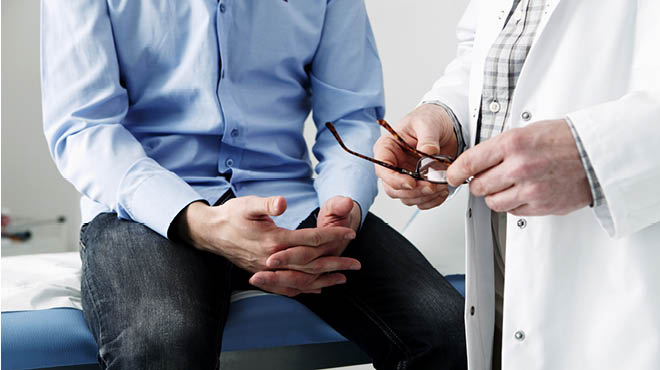Recent Posts
Debunking 6 urinary tract infection myths

A urinary tract infection, also called a UTI, is an infection that occurs in the urinary system. This includes the bladder, ureters and kidneys. Most infections involve the bladder, which is known as the lower urinary tract.
UTI is the most common infection in the U.S. for women. About 40% of women will have at least one UTI in their lifetimes, and 1 in 10 postmenopausal women had a UTI in the last year. It’s also common to have multiple infections, with about half getting a second infection within a year.
UTIs don’t always cause symptoms, but when they do, they may include a strong urge to urinate; burning feeling while urinating; urinating more often; red or bright pink urine; or pelvic pain.
Patients also may experience chills, marked fatigue, fever or flank pain along the side of the torso below the ribs. These symptoms indicate that the infection has extended beyond the bladder, possibly to the kidney or into the blood stream.
Get the facts about this common infection by reviewing these debunked myths:
Myth: Only women can get a urinary tract infection.
Truth: UTIs can affect both men and women. Women are at greater risk for a UTI because the urethra is shorter than in men, so it's easier for bacteria to travel to the bladder. UTIs also are more common in postmenopausal women because low estrogen levels change vaginal and urethral tissue to increase the risk of infection.
Myth: All UTIs cause symptoms.
Truth: Most UTIs cause symptoms, like pain or burning when urinating; feeling like you need to urinate often; or a burning sensation while urinating. However, it is possible to have bacteria in the urinary tract but not have any UTI symptoms. This is called asymptomatic bacteriuria, and it is more common in older adults or people who use a catheter to empty their bladders.
Myth: All UTIs must be treated with antibiotics.
Truth: Not all UTIs require antibiotics. Some people can have bacteria in their bladders but not experience any symptoms. This is called asymptomatic bacteriuria. In most cases, no treatment is necessary as the bacteria is not causing issues.
But there are a few groups of people that may require treatment, including people who are pregnant, people with planned urologic surgery and people with weakened immune systems.
Antibiotics are used to treat UTIs when the person is experiencing painful or bothersome symptoms and bacteria present in the urine.
Myth: A UTI will go away on its own.
Fact: Asymptomatic bacteriuria, which is a UTI without symptoms, could go away without treatment. However, UTIs with symptoms rarely resolve on their own.
If you are experiencing UTI symptoms, like burning, pain or frequency, talk with your health care team about obtaining a urine culture and the right treatment for you.
Myth: UTIs can be passed to your partner.
Truth: UTIs are not contagious or passed between partners by sexual or casual physical contact.
Myth: UTIs are sexually transmitted infections.
Fact: Sexual activity can increase the risk for, but it does not cause a UTI. Therefore, UTIs are not classified as sexually transmitted infections.
The act of intercourse can cause bacteria to get close to or into the urethra, the small tube that empties your bladder. Lower your risk by urinating after intercourse to remove some of the bacteria before it can cause an infection.
Talk with your health care team if you think you have a UTI. Seek medical attention if you believe you have a UTI and are experiencing a fever, chills, disorientation, or back or side pain.
Ross Avant, M.D., is a urologist in Albert Lea and Austin, Minnesota, and Mayo Clinic in Rochester, Minnesota.

